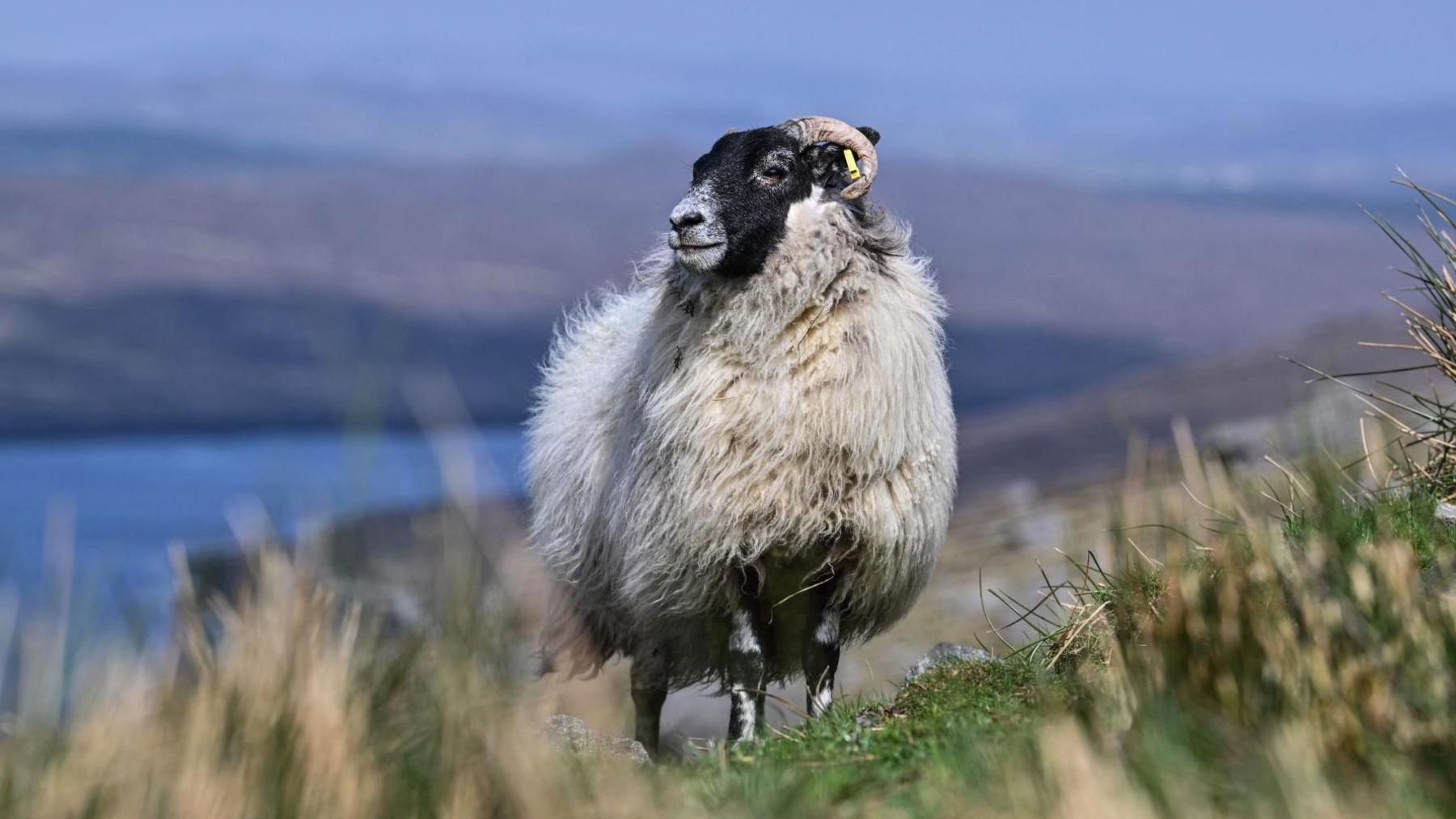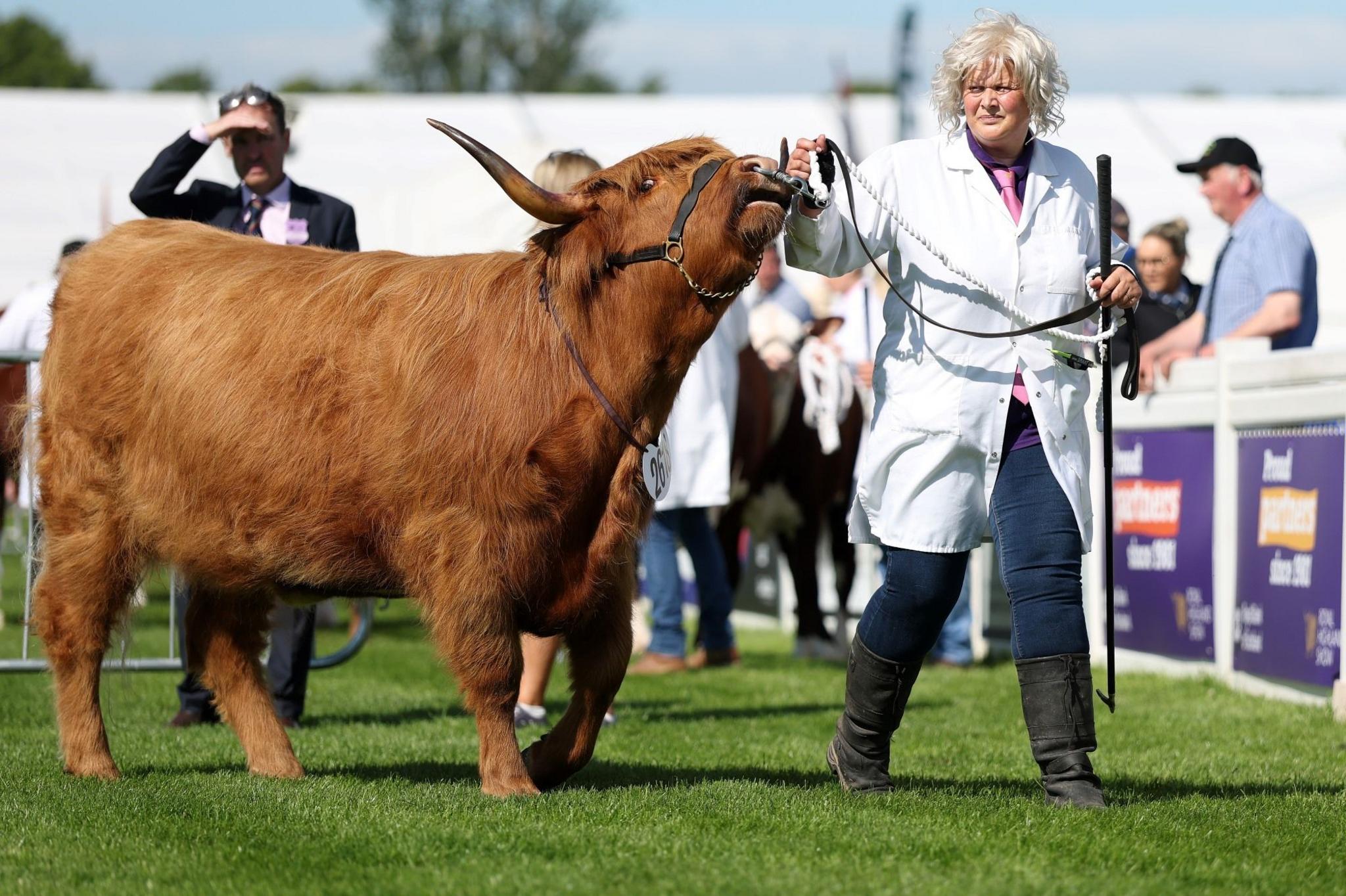Vaccinate to tackle deadly livestock virus, warns chief vet

Sheep farmers are likely to be most affected by movement restrictions
- Published
Scotland's chief veterinary officer is urging farmers to vaccinate livestock against the deadly bluetongue virus that has been sweeping across Europe.
Movement restrictions in areas of the east and south east, where the virus has been detected, have been lifted making the whole of England a restricted zone (RZ).
But while the change will make it easier for cattle and sheep to move around England, animals coming to Scotland will have to be tested or vaccinated.
NFU Scotland's president, Andrew Connon, said it was important for farmers to stick to the rules and keep the virus out.
The Bluetongue virus (BTV-3) is carried by infected midges and can cause animals "significant suffering" and death, according to a letter sent to farmers from the chief vet Sheila Voas.
She said the widening of the restricted zone to cover the whole of England removed a "buffer" and that the disease "could creep closer to Scotland without warning".
She added: "There is a general industry consensus that Scotland should work with the intention of remaining BTV-3 free for as long as possible, and we will deploy a suite of movement restrictions from the RZ and surveillance measures to achieve this goal."

Livestock was able to move from the north of England to Scotland for the Royal Highland Show last month
Although Bluetongue can be devastating for farmers, there is no risk from the virus to human health.
Animal vaccines have been available since April but have to be provided at the expense of the farmer.
Most vets are understood to be administering them for around £5 per dose to make it affordable for whole flocks.
Cattle which have had one type of vaccine - called Bultavo-3 - are able to move from England to Scotland without further testing.
Those cattle which have been given other makes of vaccine - or any other animals - will have to be tested before and after being moved to Scotland.
Farmers say that testing is prohibitively expensive for sheep meaning cross-border trade is likely to be significantly affected.
Figures from NFU Scotland suggest 193,000 sheep were moved from England to Scotland last year along with 50,000 cattle.
The figures don't include animals which were brought to Scotland for slaughter.
Red-meat bodies, including the Scottish Association of Meat Wholesalers, say the restrictions should be extended to cover the whole of the UK to allow the flow of cross-border trade to continue.
But NFU Scotland says that while the restrictions will be difficult for farmers, it's right that every effort is made to keep the virus out for as long as possible.